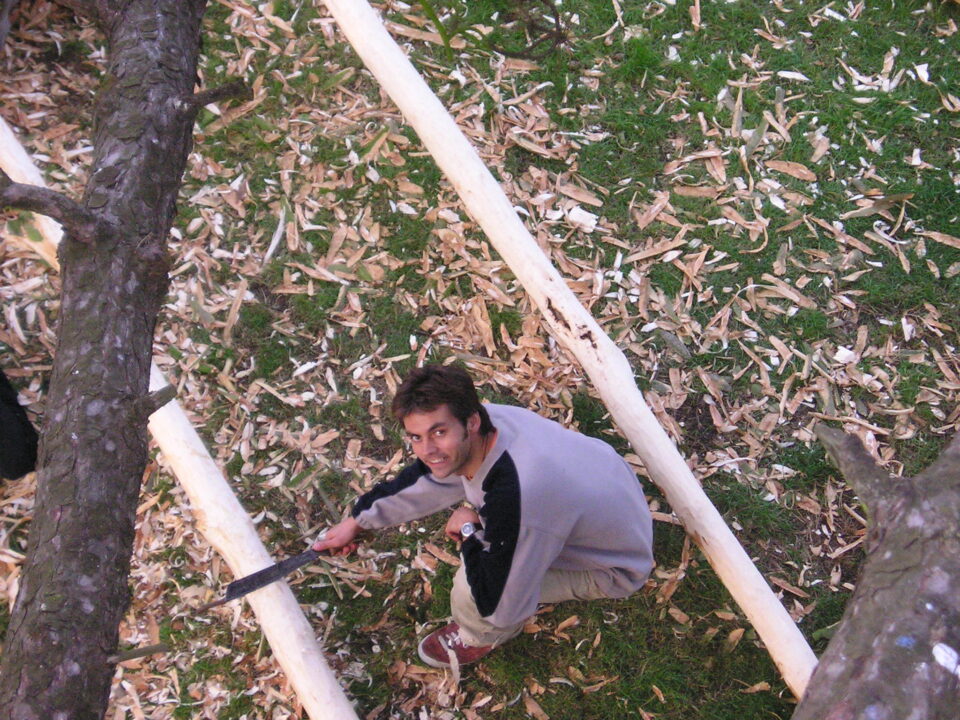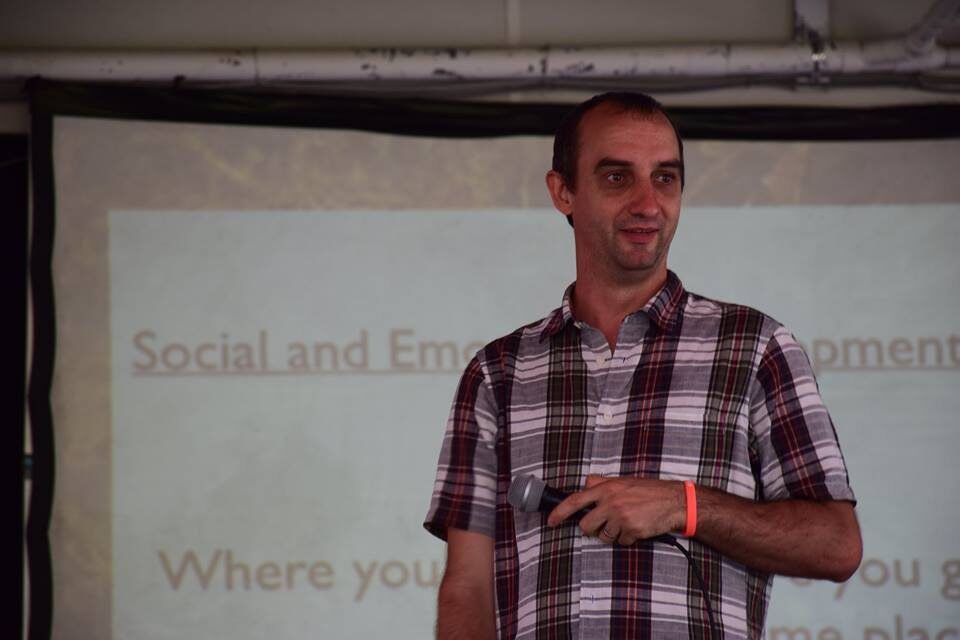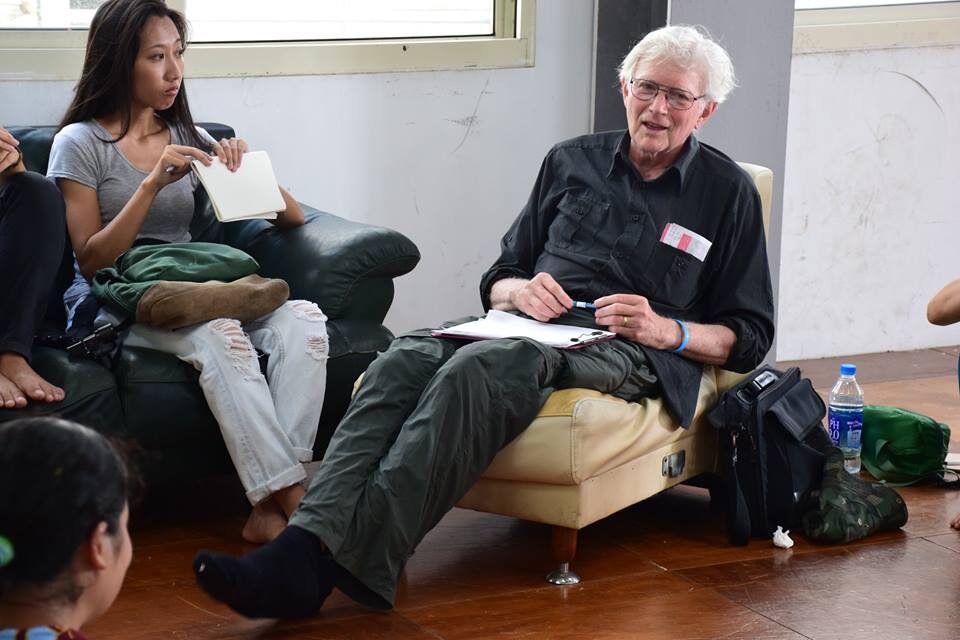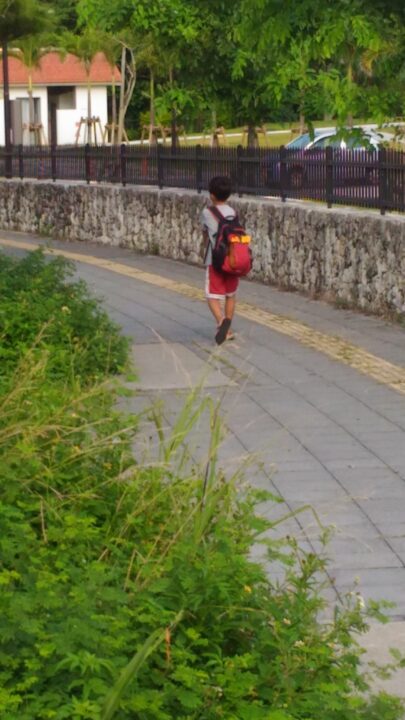(この投稿を日本語で読む)
Summerhill School is a democratically-run boarding school in England for children aged six to eighteen. Founded by A.S. Neill in 1921 it is sometimes called “the oldest children’s democracy in the world,” and when I visited for a week in 2005 I loved it – I said to my mother “That’s the first school I’ve visited that I actually like!” The kids had so much freedom – some of them went to lessons but many of them simply spent the day climbing trees and messing around on bicycles. I also got to witness the school meeting, which was wonderfully egalitarian, with teachers and students on a completely equal footing, able to speak their minds honestly and without pretense. At one point in a discussion about the school’s recent expensive heating bills the head Zoe Readhead flatly stated: “I just think it’s fucking appalling that you’ve got the fucking windows open while the heating is running!” I loved the swearing: it was the total antithesis of how our society thinks we should talk to children, but Zoe didn’t have a thought for talking down to the kids just because they were younger than her – she simply spoke her mind directly and honestly using the words that best fit her feeling.

That said, I had one reservation that stuck in my mind ever since: as a boarding school with two-month long semesters I felt that the children there were a bunch of very happy kids who also missed their parents, and in the years since I have continued to consider the parent-child relationship as of key importance for nurturing in children a sense of safety and attachment that will allow them to develop into calm and confident adults.
So I was very interested to listen to the keynote speech by Henry Readhead (A.S.Neill’s grandson, Henry grew up at Summerhill and is now part of the management), in which he put forward the idea that actually the children at Summerhill really benefit from this independence from their parents.

Henry emphasized that for him this opportunity for the child to live their life away from the oversight (and potential interference) of their parents was one of the key defining characteristics of Summerhill. He told us about just how much fun it is to be away from your parents, sleeping in a room with your buddies, playing computer games and swapping sweets, and he related that evading the Beddies Officers (older students who are responsible for enforcing bedtimes) to go on midnight excursions was some of the greatest fun he has ever had. There’s some research to suggest that the biggest predictor of adult happiness is childhood happiness – if a happy childhood results in a happy adulthood then having a whale of a time in childhood would seem to set children up for very happy adulthoods (though it’s also possible that there is a rule of diminishing returns).
I had been concerned about homesickness, and Henry confirmed that the school will often get a call from a parent who is terribly worried because on the phone their child has been crying about how homesick he is. Zoe will often have to reassure these parents: “Well, yes I’m sure he was crying when he talked to you, but actually he’s spent the day perfectly happy, he’s been going wild climbing trees all day!” In other words, the homesickness that a child will express on the phone, whilst genuinely felt at the time, is not a good representation of their overall experience at Summerhill.
(We had a perhaps related experience at the school I help run (Note: I’m no longer involved with this school) recently: a child was going home every day and crying about being bullied, and whilst there probably was a bit of unpleasantness going on between her and another child, the staff’s impression was that the girl was actually thoroughly enjoying her days at school. It’s interesting to consider the emotional origins of these type of reactions, and how to best respond – perhaps I’ll come back to this in another post).
Peter Gray, in his Open Space follow-up to his keynote, made a similar point: that what children really need is other children to play with. He pointed out that in hunter-gatherer societies it’s relatively rare for adults to play with children, and noted that the endless repetition children want and need from play is much better supplied by other children (who similarly crave repetition) rather than from adults who will inevitably get tired of the repetition eventually.

This is something I have often noticed in my own life: although I enjoy spending time with my children (they are easily the cutest people in the world 🙂 ) and the kids at school and I like playing sometimes (especially if the nature of the game is fairly physical – recently we’ve been enjoying tennis, catch-ball and dodgeball) – sometimes I find I don’t have much enthusiasm for playing. I remember a time in the park with Boo when he was about five: he wanted to play an imaginative game where we were collecting leaves to make a (pretend) fire, and I really tried to get involved and enjoy it, but it was so boring to me that eventually I had to tell him I didn’t want to play any more. He continued to play on his own amiably enough, but reflecting on Henry and Peter’s talks I can see that what Boo really needed was some other children to share his game with him, and indeed at our school this kind of imaginative play is exactly how the children often spend their days. They don’t need adults as playmates because they have each other: they feed off one another’s enthusiasm and keep themselves endlessly entertained.
Similarly, I’ve recently noticed that at the weekend when I start to get us ready to go to the beach, Boo’s first question is “Are any other children coming?” We have a good time just as a family, but ideally he’d like some more children to play with, so I often try to gather a couple more families via phone and Facebook.
Listening to Peter and Henry has also made me feel better about a couple of things I’ve been feeling slightly guilty about. At the beach with a group of families the pattern is that the kids will play with each other while the adults stand around chatting, and my personal pattern is that I will often want to go off on my own for a snorkel, a paddle on my SUP, or even just a walk. I’ve sometimes felt a little guilty about this, like I should really play with the children more, but Peter Gray’s talk has helped me see this in a different light: that it’s the other children who are the best playmates. Indeed, looking at the hunter-gatherer tendency shows that I am probably following a very natural pattern for a forty-two year old male (whereas the guilty feeling is coming from cultural pressures, ironically including my personal/professional involvement in issues relating to childhood). This aspect of “play” is also perhaps why, although I enjoy young children and have spent a lot of my professional life working with them (especially in democratic contexts) I actually find I am more drawn to working with teenagers and young adults.
I do, however, still consider parent-child relationships to be very important, perhaps more important than Summerhill estimates. They take children from six years old, and whilst I see no reason not to accept the school’s assertion that these children do well, I wonder if there isn’t also something missing when children that young are spending significant amounts of their time away from their parents (perhaps this is where the “homesickness” issue comes from, and I am reluctant to simply dismiss a genuinely-felt emotion simply because the rest of the day was spent happily). It seems I am not alone: Henry commented that although people always assume Summerhill is oversubscribed, in fact they are not and have never been, in part because parents are reluctant to send their children away for so long at a time, and I confess that I would not want to send Boo there at his current age (seven and a half), though I consider it a good option for when he is a little older. I fully support the child’s right to free play away from their parents during the day, but I think they also benefit from being able to spend time with their parents in the evening, so (at least for younger children) I currently favor a day-school model. Indeed, this probably more closely mirrors the hunter-gatherer pattern, where children play in the forest all day but return to the camp at night.
Also, as a father if Boo were away at Summerhill for two months at a time I would genuinely miss him. Once a month or so Wonderwife takes the children to stay at her mother’s for the weekend, and whilst I try to remember to enjoy the peace and quiet, the house is very quiet and I sometimes get a little lonely. I love seeing their smiling, laughing faces on a daily basis, and I even enjoy the challenge of responding to their more difficult moments (which have undoubtedly made me a better person, though that process is still ongoing….). And I’m acutely aware that my children won’t be children forever – Boo is already half way to fifteen, and I hear from friends that by fifteen you hardly see them, so I want to enjoy their childhoods to the fullest. Of course, I am aware this is my need not theirs, but I do feel that a day-school arrangement provides a better compromise between their need for independence and my need to enjoy their childhood. That said, Summerhill itself may also be a good compromise: with three two-month semesters a year Summerhill children still spend half of the year living with their parents, and so perhaps get the best of both worlds.
Either way, listening to Henry has given me a fresh respect for children’s need for independence from their parents. I can see how even at a day school we can learn from Summerhill by organizing more trips away, and perhaps even summer camps where the children stay away for longer periods. I have also been made more aware of how my children are perhaps capable of a little more independence than I realize, and how as a parent I need to be careful not to stifle this with my expectations. Perhaps the best way to do this is in negotiation, talking about options that require some more independence and seeing how my children feel. For example, several of our children live locally and so at the end of the day often go to the park to play before heading home. We live further away so take Boo to school, but recently he has been saying he wants to go to the park with the other kids, so we’ve agreed to pick him up a little later on those days.
And finally, I’d like to finish with something that happened just this week. Until now I’ve always pulled into the school car park to drop Boo off, but on Thursday he said that he’d like to be dropped off at the corner and walk the rest of the way himself. As a young child Boo was always very clingy, needing regular reassurance and running to us at any difficulty, so I was just so happy and proud to see him becoming competent and confident (feeling like one of the “big kids” who walk to school on their own) that I snapped a quick picture as he walked cheerfully up the road towards school.

I guess there will be lots more moments like this in the coming years, and then one day quite soon I’m going to wake up and realize he’s grown into an independent young man. In the meantime, I’m going to enjoy his childhood, and all the little steps on the way…..

“Children’s independence” への3件の返信
コメントは受け付けていません。